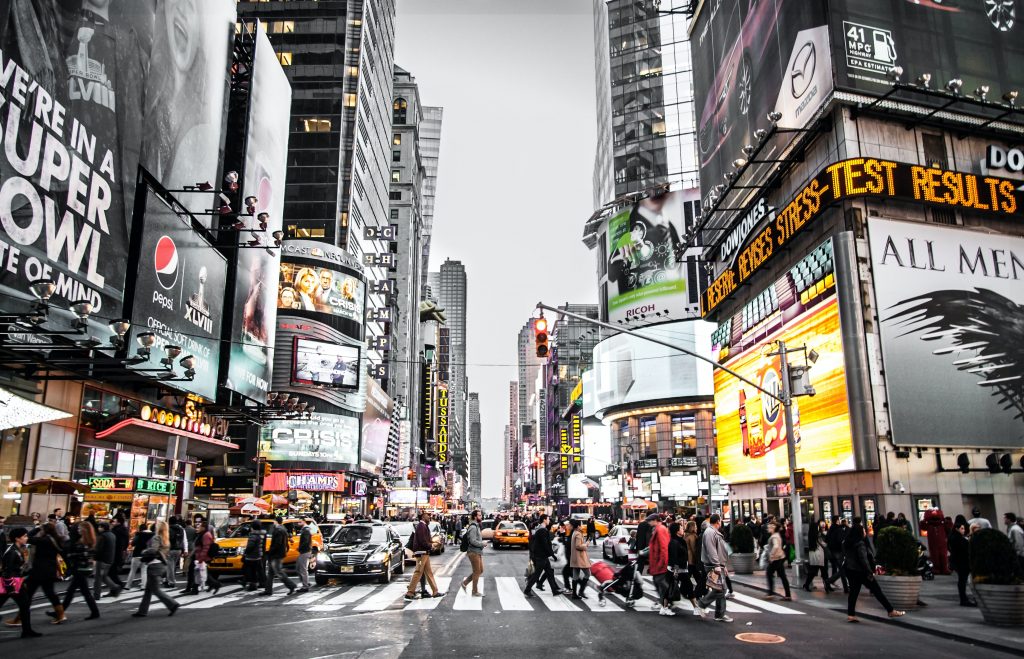
Should You Be Marketing During An Economic Downturn?
We’re living in economically turbulent times. Old news, we know.
During this time, a lot of companies would traditionally be looking to hunker down, cut costs, and ride out the storm, and it seems like this time’s no different. Businesses across the globe are in survival mode with round after round of lay-offs, hiring freezes, and budget cuts.
For those of us in marketing, a lot of us know full well that when the budget cuts come hammering down, it’s the marketing department that usually takes the first and heaviest set of blows. Is this the way to go?
Outside of us wanting to stay gainfully employed, research also doesn’t seem to think so. In a McGraw-Hill research study that followed 600 companies between 1980 and 1985 found that the companies that chose to either maintain or increase their advertising budget during the 1981 and 1982 recession had sales that were 256% higher than companies that chose not to advertise. Spending in a time where nobody else is spending seems to allow you to not only recover more quickly but also get a huge leg up over your competition.
Why would this be the case? Several similar studies have suggested a few reasons.
Reason 1: Brand Awareness is in a constant state of flux

Photo Credit: Aaron Sebastian, Unsplash
Just like everything else, brands by themselves are very much “Here today, gone tomorrow”. That is, unless, companies invest in advertising to pump new life back into their brands and remind everyone that they still exist.
So, if your company chooses to dial back on the advertising dollars, then naturally your brand will gradually lose consumer brand awareness. This is all well and good if every other company in your industry shook hands and had a gentlemen’s agreement with you to slash their marketing budgets as well. That’s a pipe dream, of course.
Companies that choose to reduce advertising spend during an economic downturn face two problems during and after the recession. The first problem comes from competitors that choose to go on the offensive and invest more in advertising during this time. These competitors and their brands will pull ahead in terms of market share as they dominate the collective consciousness of consumers. This effect is compounded by advertising being cheaper during an economic downturn, making their campaigns even more effective and efficient.
Once this happens, the second problem comes into play. Unless you can somehow expand the market, the game of gaining market share is zero-sum. As competitors gain a larger share of the market due to you pulling out, it will be much more difficult for you to catch back up and regain the market share you lost once the economy recovers and you decide to start advertising again. David Sable, COO of Wunderman, stated that “[i]f companies cut deeply into advertising and communications in a down period, the cost to regain share of voice in the market once the economy turns around may cost four or five times as much as the cuts saved…”.
For a real-world example of this, we only need towards Reckitt Benckiser’s strategy during the last major global recession in 2008. A Harvard Business Review article detailed how Reckitt Benckiser not only increased its advertising expenditure by 25%, they also launched a marketing campaign promoting its more expensive and better-performing brands; moves that people wouldn’t have intuitively arrived at during the biggest financial recession of the century. However, the article reported that Reckitt Benckiser actually grew their revenues by 8% and their profits by 14%, whilst competitors that chose to dial back on their advertising spend reported profit declines of 10% or more.
Reason 2: What works in advertising is also in a constant state of flux!

Photo Credit: Eleni Afiontzi, Unsplash
There aren’t very many evergreen ads. Generally speaking, even absolute classics like the Old Spice guy get slowly phased out or changed over the years for a few good reasons:
-
- People get sick and tired of seeing the same ad. At best, ad fatigue becomes a meme (e.g. “This podcast/video was sponsored by insert-brand-name-that-has-hounded-after-you-for-fifteen-videos-in-a-row”). At worst, people get sick of both the ad and your brand.
- People’s tastes shift over time. Ads that were designed for a particular audience a decade ago may not be as well-received due to generational and cultural shifts.
In an economically turbulent period such as right now, there’s another reason why ad campaigns that previously worked for you might not fly now: the shifts in the economy will also cause shifts in consumer spending habits. In another article published by the Harvard Business Review, John Quelch and Katherine E. Jocz outline the importance of companies to not just track how customers are shifting their spending habits and managing their budgets, but also how their habits will change after a recession is over. People don’t emerge from a recession or an economic downturn and bounce back to their old spending habits as if nothing had happened. For example, some consumers might emerge from an economic downturn as being more careful and thrifty with their spending. Consumers will be changed and shaped by the experience, and it’s up to companies to recognise and invest in ongoing market research to track that in order for their advertising to maintain its effectiveness.
Caveat: You CAN have too much of a good thing!
That being said, the key takeaway from what we just said should not be that you should be spending aggressively and recklessly during an economic downturn!
A study that followed 4,700 public companies before, during, and after a recession found that whilst companies that employed cost-cutting strategies were less likely to come out ahead compared to companies that decided to spend aggressively, they found that the winning strategy was actually a strategy that sort of combined the two. More specifically, they found that companies that simultaneously reduced costs by focusing on operational efficiency whilst investing for the future by spending on marketing, R&D, and assets, had the highest probability (37%) of breaking away from the competition and pulling ahead of the pack.
So, while it is important to not focus so much on surviving that you cannot thrive, you mustn’t forget that there is no opportunity to thrive if you can’t even survive. To apply this to us marketers, this might mean optimising our marketing mix through re-allocating the marketing budget to reduce advertising dollars in channels that don’t perform as well or whose performance aren’t as easily measurable to ones that are (i.e., digital advertising channels).
In sum, an economic downturn presents a good opportunity to cut costs, as other people in your company will be more likely to be on board with budget cuts when they’re presented against the backdrop of a rough climate. When doing so, just remember to be mindful of how you try to cut down on costs; taking too much away from investments towards the future and towards marketing may very well pull your horse out of the race.
Of course, there’s no one-size-fits-all model for how exactly your company should steer itself out of an economic downturn, but we do hope that this article has communicated to you that the answer isn’t as simple and straightforward as budget cuts galore and that your strategy moving forward will require some careful thinking and planning.


